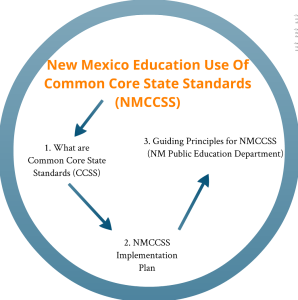Recent articles have called Common Core (CC) into question for a variety of reasons. Many of them seem either politically motivated, nonsense posturing, or both.
- A few states have tested under CC and found test scores went down from No Child Left Behind NCLB – testing standards under NCLB were gutted a few years ago by allowing states to ‘set their own’ standards if NCLB seemed embarrassingly tough.
- ‘CC test scores going down’ is the problem and reveals the ‘experimental’ therefore untrustworthy nature of CC – so, kids performing below grade level, dropping out, and requiring much remediation for higher education are not, and have not been, the problem since even before NCLB passed in 2002?
- Local standards varied greatly and didn’t seem to be getting the job done anyway – one recent editorial by a U.S. Representative stated a) ‘all these new programs’ were confusing and wasteful, b) government imposed standards was a bad idea, and what was needed were c) ‘voluntary’ standards … really? Voluntary standards? One wonders if the person owned or used a dictionary, besides, NCLB becoming a ‘voluntary standard’ caused big problems.
Anyway, clicking on the image below will take you to a 16-slide Prezi presentation. You can change slides by clicking the right-left arrows at the page bottom; after the first click you can change slides by pressing the left-right keyboard arrows.

